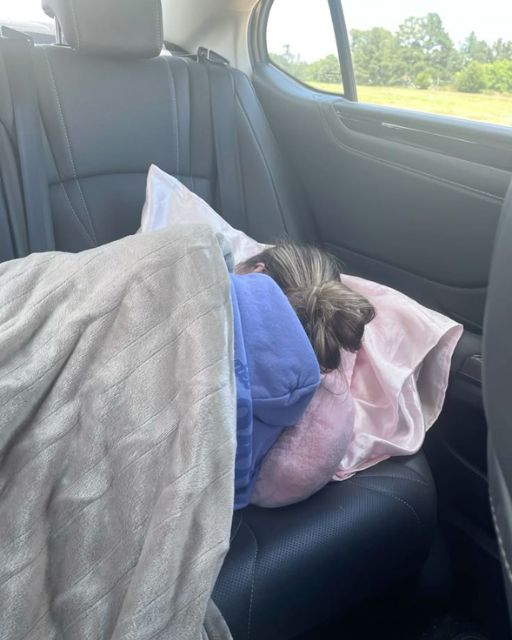I’ve been a manager for nearly six years, and I always prided myself on being fair. Strict, yes, but fair. I believed in the importance of rules—if I made exceptions for one person, where would it end? That’s what I told myself when I fired Celia last week.
She was late again—third time this month. Our policy was clear: three strikes, and you’re out. When I called her into my office, she didn’t say a word. She simply nodded, grabbed her bag, and left without putting up a fight. In hindsight, that should’ve been my first clue that something wasn’t right.
Later that afternoon, I overheard a conversation between two coworkers. “Did you hear about Celia’s son?” one asked. “Yeah,” the other responded with a sigh. “Poor kid. She’s been sleeping in her car with him.”
I felt my stomach twist.
I pulled one of them aside. “What do you mean ‘sleeping in her car’?”
It turned out that Celia had been evicted a month ago. Her ex had disappeared, leaving her without child support or family nearby. She’d been working double shifts when she could, but most shelters were full. So, she and her six-year-old had been living in her car. The mornings she was late were because she had to drive across town to a church that allowed them to shower before she dropped him off at school.
I felt sick.
That night, I couldn’t stop thinking about it. Celia wasn’t late because she was irresponsible. She was late because she was trying to survive. And I had made her situation even worse.
The next morning, I called her. She didn’t pick up. I texted, but received no response.
I then found the last address we had on file and drove to it. The apartment complex was rundown, and the manager told me she’d been evicted weeks ago.
Now, I was sitting in my car, searching online for any way to get in touch with her. I wasn’t even sure if she still had her phone.
I wanted to help, and I had a job waiting for her if she was interested—but what if it was too late?
I don’t know how long I sat there, staring at my phone, before I made a decision. I had to find her. I started calling shelters, food banks, and any other places she might have gone for help. Most couldn’t give me personal details, but one woman at a church downtown hesitated when I mentioned Celia’s name.
“She was here two nights ago,” the woman said. “She picked up some food and blankets. That’s all I know.”
It wasn’t much, but it was something. I drove downtown and parked near the church. If she had been there, maybe she wasn’t too far. I walked the streets, looking into parked cars, feeling like a creep. Just as I was about to give up, I saw an old sedan in a grocery store lot. The windows were fogged up, and a small face peeked out from under a blanket in the back seat.
My heart skipped a beat.
I knocked gently on the window. A moment later, Celia sat up in the driver’s seat, her eyes wary. When she recognized me, her face went blank.
“Celia, I’m so sorry,” I blurted. “Please, let me help.”
She hesitated before rolling the window down a little. “Help?” Her voice was flat. “Like how you helped last week?”
I deserved that.
“I didn’t know,” I admitted. “I should have asked. I should have noticed. Instead, I just followed the rules without considering the person in front of me.”
She didn’t respond, but I could see her son shifting in the back, curling under the blanket.
“Please come back to work,” I said. “Your job is still yours if you want it. But more than that—I want to help you get back on your feet.”
She let out a hollow laugh. “Help how? With a paycheck that barely covers rent?”
I swallowed hard. She was right. I couldn’t just give her a job and assume everything would be okay.
“I can do more,” I said. “I have connections. My cousin manages an apartment complex—they have a unit available. I can help you get in without a deposit. And there are programs for food and childcare. I can call around and find out what resources are available.”
She stared at me. “Why?”
“Because I messed up,” I said. “Because I was so focused on the rules that I forgot to see you as a person. And because you don’t deserve this. Neither does he.”
She looked at her son, then back at me. Her shoulders trembled.
“Okay,” she whispered.
The next few weeks were a whirlwind. I kept my promise. My cousin got her into the apartment. My company increased her pay slightly, and I did everything I could to get her the help she needed through various assistance programs. It wasn’t perfect, but it was a start.
One afternoon, she came into my office. “I just wanted to thank you,” she said. “Not just for the job. But for seeing me.”
“I should have seen you from the start,” I admitted.
She smiled, and for the first time, it reached her eyes.
That night, I sat in my car, reflecting on how close I came to making an unforgivable mistake. We get so caught up in policies and procedures that we forget people aren’t just numbers. Everyone has a story, and sometimes, all they need is someone to listen.
If there’s one thing I learned from this experience, it’s that kindness shouldn’t have conditions. And sometimes, breaking the rules is the right thing to do.
Have you ever judged someone too quickly? Let me know in the comments. If you think this message needs to be heard, please share.
